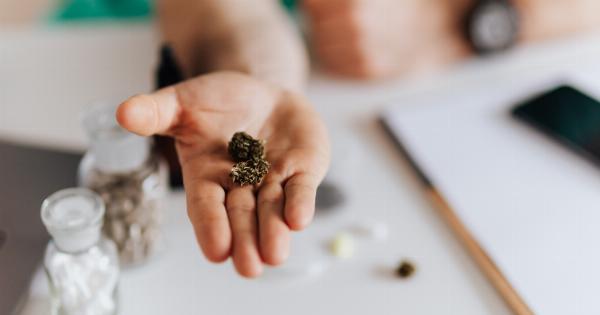Urinary Tract Infections (UTIs) are a common issue that affects millions of people, and they can be quite uncomfortable and painful. While several factors can contribute to the development of a UTI, one surprising cause is sexual activity.
Yes, you read that right – sex can cause a UTI. In this article, we will explore the facts behind this connection and provide you with helpful information on how to prevent UTIs after sexual intercourse.
The Anatomy of UTIs
Before we delve into the impact of sex on UTIs, let’s take a moment to understand the basics of urinary tract infections. A UTI occurs when bacteria enter the urethra and multiply in the urinary tract, causing an infection.
Women are more prone to UTIs due to their shorter urethra, which allows bacteria to reach the bladder more easily.
The Connection: Sex and UTIs
Engaging in sexual activity can increase the likelihood of developing a UTI. Here’s why:.
1. Friction and Irritation
During sex, friction and irritation can occur in the genital area. This can cause small tears or abrasions, providing an entry point for bacteria into the urinary tract.
2. Introducing Bacteria
Sexual activity involves contact with various body parts and fluids, including the anus, penis, vagina, and mouth. If any of these areas carry bacteria, they can be introduced into the urethra during sex.
3. Disruption of the Urogenital Microbiome
The urogenital microbiome refers to the balance of bacteria that naturally reside in the genital area. Engaging in sex can disrupt this balance, allowing harmful bacteria to take over, leading to a UTI.
Preventive Measures: Reducing the Risk
While it may not be possible to eliminate the risk of a UTI entirely, there are several preventive measures you can take to significantly reduce it:.
1. Urinate Before and After Sex
Emptying your bladder before and after sexual activity can help flush out any bacteria that may have entered the urethra.
2. Practice Good Hygiene
Keeping your genital area clean and practicing proper hygiene can help minimize the spread of bacteria during sex. Remember to wash your hands before engaging in any sexual activity.
3. Stay Hydrated
Drinking plenty of water helps flush out bacteria from the urinary tract, reducing the likelihood of an infection.
4. Limit Harsh Chemicals
Avoid using harsh soaps, sprays, or douches in the genital area, as these can irritate the urethra and disrupt the natural balance of bacteria.
5. Use Lubrication
Using a water-based lubricant during sex can reduce friction and minimize the risk of irritation or tears in the genital area.
6. Practice Safe Sex
Using barrier methods, such as condoms, can provide an extra layer of protection against the transmission of bacteria during sex.
When to Seek Medical Help
If you experience symptoms of a UTI, such as a strong urge to urinate, a burning sensation while urinating, cloudy or bloody urine, or pelvic pain, it is crucial to seek medical help.
Your healthcare provider can diagnose a UTI through a urine sample and prescribe appropriate treatment.
Conclusion
While sex can increase the risk of developing a UTI, it’s important to remember that with proper preventive measures, the likelihood of infection can be significantly reduced.
By taking care of your hygiene, staying hydrated, and practicing safe sex, you can continue enjoying a fulfilling sex life while minimizing the risks associated with urinary tract infections.































